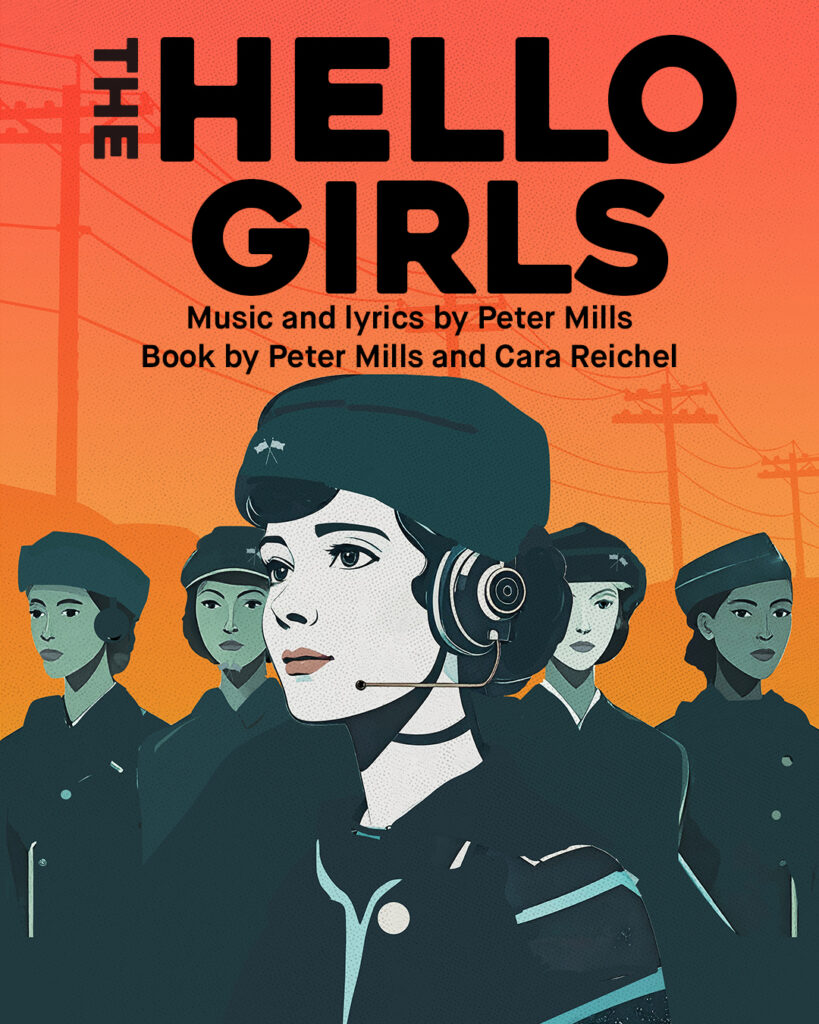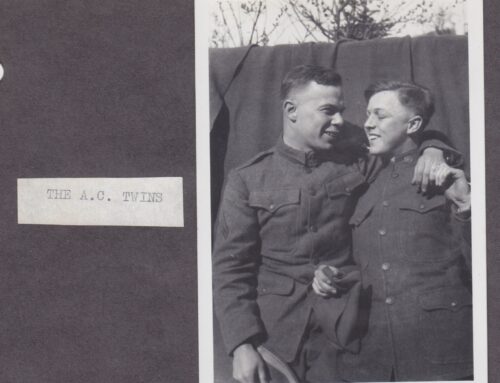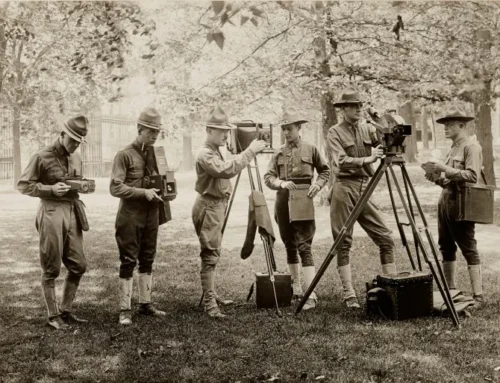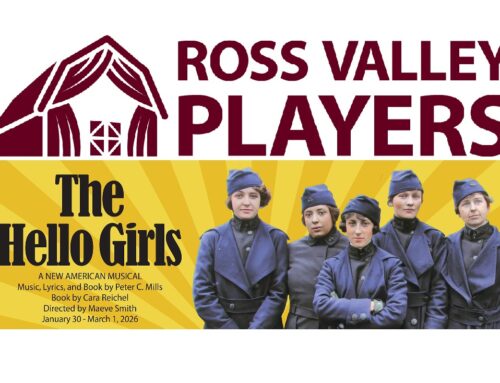The Hello Girls Tunefully Honors America’s First Female Soldiers at Syracuse Stage
Published: 25 July 2025
Special to the Doughboy Foundation website

Hello Girls musical in Sycaruse header image framed
The World War One era musical runs September 9 – 28, and follows the “Hello Girls” as they enlist, see combat, and return home to inspire generations of women in the armed forces.
In 1918, under the order of General John J. Pershing, the Signal Corps Female Telephone Operators Unit sailed for France to run switchboard operations on the frontlines during the twilight of the First World War.
Nearly 100 years later, over a long Memorial Day weekend, theatre director and playwright Cara Reichel stumbled upon a documentary that told the story of these so-called “Hello Girls”—the courageous women who would connect 26 million calls before the war’s end.
“For some reason, it just grabbed me,” Reichel said of the film, which chronicled the history of women in the military. “At that time, we were looking around for projects that would center strong women characters and stories. And this particular story is an important one.”
She brought the idea to her husband, composer and frequent collaborator Peter Mills, who agreed, and the two began work on what would become The Hello Girls, a musical inspired by the heroic Americans who became the nation’s first female armed service members.
The show premiered at Prospect Musicals in New York City in 2018, marking the centennial anniversary of the real life “Hello Girls” tour of duty. A new production, with reworked staging, orchestrations, and material, premieres at Syracuse Stage in Syracuse, New York on September 9 with a special free-of-charge performance for veterans, active military members and their families.
Having written period pieces before—Reichel and Mills premiered an adaptation of F. Scott Fitzgerald’s debut novel This Side of Paradise in 2014—the pair felt confident in creating the sights and sounds of the late 1910s. In finding a musical identity, Mills drew from contemporary genres like ragtime and jazz, but also reached forward to the big band swing of the 1940s, developing a sound that is not so much a time capsule of 1918 as it is an evocation of a bygone era.
A song like “We Aren’t In the Army,” for instance, draws heavily on a famous Scott Joplin admonition (“it is never right to play ragtime fast”) to illustrate the plodding bureaucracy the “Hello Girls” faced when first enlisting, while “Je M’En Fiche,” a spirited and defiant showstopper, channels the type of song that wouldn’t be heard in dance halls until at least the 1930s—appropriate, Mills thinks, for a group of Americans who were, in many ways, already modern: “ These women were ahead of their time and were blazing the trail,” he said.
When it came to historical fidelity, however, both Reichel and Mills were much more interested in creating a world that hewed closer to the truth, especially for an audience largely unaware of the Signal Corps Female Telephone Operators Unit.
“I think in particular, when you’re telling a story that people don’t already know, there is a responsibility to have a certain amount of the real history,” Reichel said.
That “real history” is most pointedly delivered in the form of Grace Banker, the chief operator of mobile for the American Expeditionary Forces who led the first group of “Hello Girls” at the Battle of Saint-Mihiel and the musical’s de-facto main character. While neither Reichel or Mills would compare theatre-making with being in the trenches, they found a kinship with Banker’s journey, and the journey of all 223 “Hello Girls” as they marched towards armistice.
 “There were so many parallels,” Mills said. “The development of the show roughly spanned the same period—from when the call went out for women, and they applied and had to get selected. It was basically less than a year of their lives that this all unfolded within, and the same with us.”
“There were so many parallels,” Mills said. “The development of the show roughly spanned the same period—from when the call went out for women, and they applied and had to get selected. It was basically less than a year of their lives that this all unfolded within, and the same with us.”
For Reichel and Mills, the development of the musical has been a labor of love (Mills calls the show a “fantastic adventure”) but also a unique opportunity to honor the personal battles the “Hello Girls” faced after war’s end. Reichel and Mills consider the women’s 60 year struggle for recognition and veteran status to be crucial to the story of The Hello Girls, and their musical is framed by the women’s fight back home.
The show’s opening number, “Answer the Call,” serves as a rallying cry for the audience, inviting them to imagine the world as it was in 1918 and consider their own capacity for sacrifice. The musical ends with the performers recounting the girls’ veteran status victory in 1979, and encouraging contemplation on our own civic involvement.
“It was an amazing discovery to learn just how much people connected with the show, how relevant it is,” Reichel said. “And I like the idea of inspiring people to remember this story from the past, but also to look around at the present moment and wonder: How can you do your bit to participate?”
Tickets to the Syracuse Stage production, September 9 – 28, are available now at www.SyracuseStage.org/hello. To reserve tickets for the Veterans and Military Appreciation Night on September 9, please call the Syracuse Stage Box Office at 315-443-3275.
External Web Site Notice: This page contains information directly presented from an external source. The terms and conditions of this page may not be the same as those of this website. Click here to read the full disclaimer notice for external web sites. Thank you.





